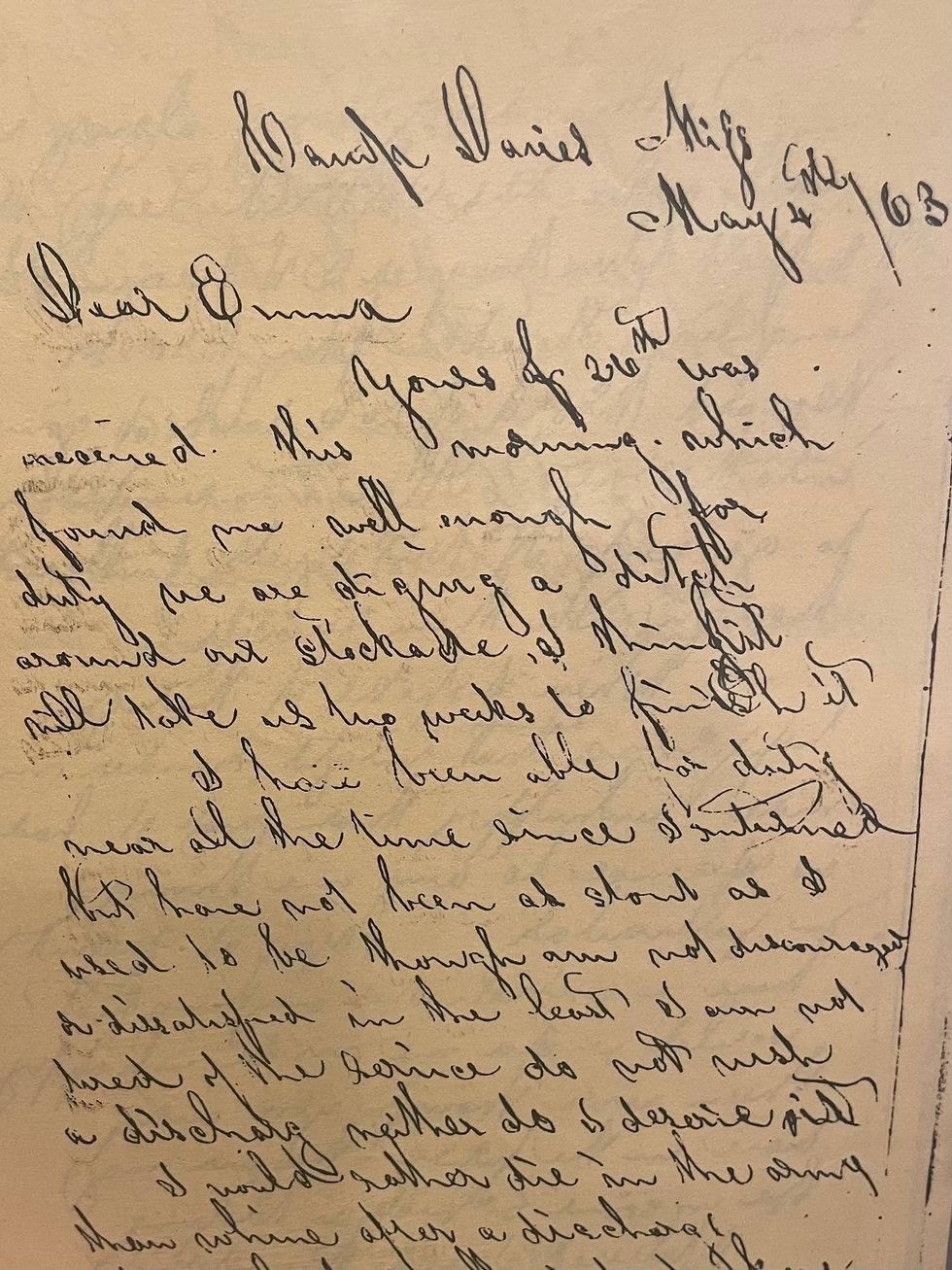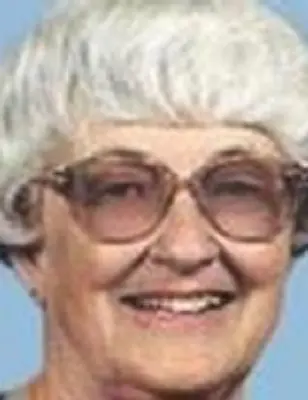Catherine & Frannie: Saving History One Letter at Time!
- Owen Doak
- Jul 16, 2025
- 3 min read
Updated: Jul 22, 2025
My ancestors' efforts to preserve Corporal John W.N. Doak's letters made my novel TO LIVE A PATRIOT possible. In spite of Corporal Doak's repeated requests that she burn them, my Great Great Grandmother Emily Jane Guthrie saved all of his letters. Her son, John William Doak, passed the letters to my grandfather Samuel Doak, who, along with Grandma Minnie, ensured their preservation for their children: Catherine (1928-2014), Frances (1929-2017), Peggy (1936-2024), and my father Samuel, born in 1935.
My grandmother Minnie Doak began typing the letters but suffered a stroke in 1976. My Aunt Frannie (Frances Doak Webb) and Aunt Catherine (Emily Catherine Griffin) then took over the task. Last year, my cousin Beth Garrett told me she recalled coming home from high school in the 1970s to find her mom, my Aunt Frannie, with letters spread out on the kitchen table, working on deciphering and typing Corporal Doak's 42 letters. It was a tedious part time project that apparently took several years.
Those who have seen my handwriting know I am not one to criticize Corporal Doak's penmanship. Some might say Corporal Doak's handwriting was sloppy. I say he did his best under challenging conditions, often adding at the end of a letter "excuse scribbling" or "excuse the pencil, we have no pens here." Near the war's end he wrote a letter while mounted on horseback, noting "my saddle is a poor desk." Despite these challenges, much of his handwriting is beautiful and consistent, reflecting his level of education. (He likely attended college briefly as a teen.) The archaic spelling in his letters is also fascinating. (note "Camp Davies, Mifs" in the letter below)

But at times deciphering the Corporal Doak's original script was not an easy task. Take, for example, the letter below:

The salutation "Dear Emma" and the date are clear enough, but the location from which Corporal Doak is writing is uncertain. My Aunt Frannie typed "Three miles south of (Wantaga?)" but there's no place like Wantaga or Montaga near Atlanta. Despite knowing he was near East Point Junction, I couldn't find a similar location on Google Maps after hours of searching.
Pictured above, from left to right. My Grandpa Samuel and Grandma Minnie Doak on their Wedding day, August 14th, 1926. Emily Catherine (Doak) Griffin and Frances (Doak) Webb.
I rarely disagree with Aunt Frannie and Aunt Catherine's transcription of Corporal Doak's handwriting. However, Frannie or Catherine may have made a small error when typing a letter from Corporal Doak dated July 15th, 1864, from Marietta, Georgia: "I am sorry to inform you that I am in the hospital, though very glad & thankful that I am improved. Have had the (flue?) was taken sick last of June though remained with my company till 5th of July." I believe Corporal Doak wrote he "had the flux," or dysentery. Nonetheless, Frannie and Catherine's work saved me countless hours. In fact, without their hard work I doubt I would have ever attempted this novel.
Catherine and Frannie not only deciphered and typed the letters but also ensured their future accessibility for historians. When I visited the Corinth Interpretive Center in Corinth Mississippi in June of 2024 for my research, the rangers promptly handed me a folder labeled "66th Illinois." It contained numerous articles, images, and letters, including several from John W.N. Doak. I was a bit surprised by this. I did not know Corporal Doak's letters were availabile to the public. I was even more surprised to find a February 1998 letter from my Aunt Catherine, also in the folder:


If you read the first page of the letter carefully, you will notice that Aunt Catherine solved the puzzle of John's location from his last letter home to Emma. It was written from McDonough, Georgia, southeast of East Point Junction. She is probably correct.
Thanks again to my Aunt Catherine and Aunt Frannie. Catherine, the singing cowgirl who tamed horses and loved them her whole life, taught elementary school for decades in Charleston. And Frances, the Paris High School May Festival Queen of 1947, was a homemaker near Kansas, Illinois and a baker extraordinaire. Both were mothers, grandmothers and great grandmothers.
I wish I could have talked to both of them about my book. I wish I had begun my novel fifteen years earlier.
God bless you both.

###












Comments